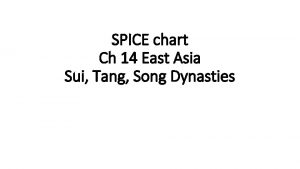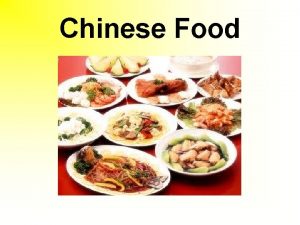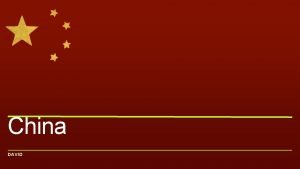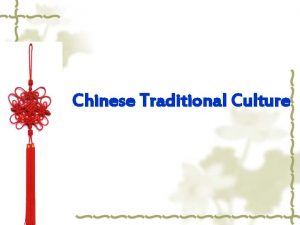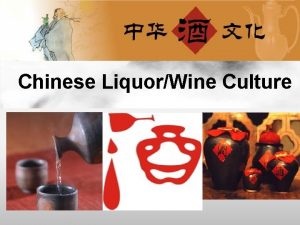Chinese food culture and rules Food in the







- Slides: 7

Chinese food culture and rules Food in the Chinese culture. By Jeffrey Wu

Chinese culture in food and customs • Chinese cuisine originated from the Chinese homeland has spread to many parts of the world. • Chinese people generally do not use knives or forks as they consider those barbaric weapons. They also dislike guests cutting their own food.

Food types • Pork is preferred then beef. It is regarded as sweeter, more succulent, and economic and religious reasons. Pigs provide nothing but meat, unlike beef with milk, and chicken with eggs. • Vegetarianism is not uncommon. There are many reasons, for example, for religion, or you are just bored with meat. Many people in China are Buddhists and do not eat meat, of just eat imitation meat.

What you should do • Hold chopsticks in your right hand, even is you are left handed. • Fish should be served with the head pointing towards the guest of honour to wish them good luck. • Allow the Eldest to eat first.

What you Should not do • To stab with chopsticks at any kind of food. • Not to pour yourself first, but to rather pour your neighbours. • Talk with your mouth full • To eat using communal chopsticks. • To incorrectly use them in any way, e. g. , beating them like drums

Special Food - Fish • If fish is served whole, when the meat on top of the fish is finished, the bones must be taken out rather than flipping it. This symbolises that a boat in which the fish was fished in has capsized and is bad luck. • Fish has a similar pronunciation to “additional”, so eating it on special occasions means “additional wealth or fortune”.

APA referencing • http: //en. wikipedia. org/wiki/Chinese_cuisine Accessed 24/09/08 • http: //en. wikipedia. org/wiki/Table_manners Accessed 24/09/08 • Tumei. Z Food in china published by CIP 2007


